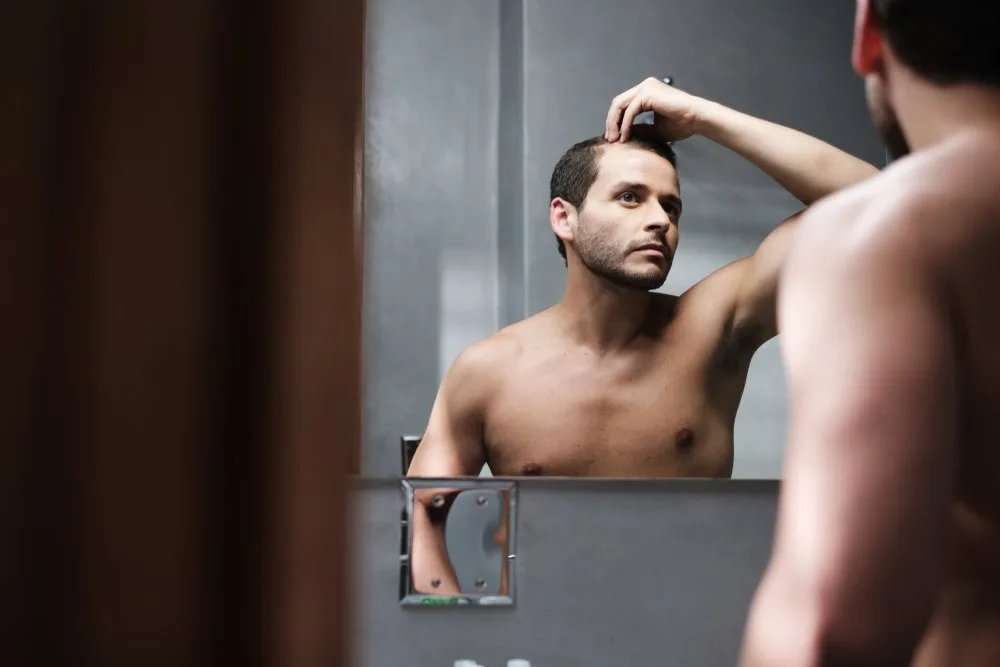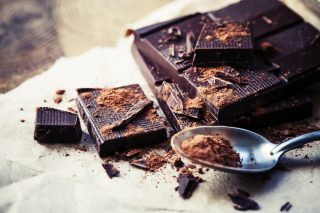While you may not know the term “free radicals,”, you’ve seen the damage that they cause. Cut open an apple and leave it on the counter for a few minutes. See all those ugly brown spots? That’s free radical damage. It becomes more visible as we age. When we look in the mirror and see what looks like “aging skin,” that’s free radical damage. The apple – and our skin – are visible reminders of the damage that free radicals do. But actually, the most significant damage that free radicals do to us is found when you look under the hood. By Jonny Bowden, Ph.D., CNS
The Free Radical Theory of Aging
In the body, free radicals damage healthy cells. In fact, there’s a whole theory of aging (The Free Radical Theory of Aging) that basically holds that aging is nothing more than a kind of “rusting from within.” Free radical damage is a significant part of just about every degenerative disease you can imagine.
Some free radicals are produced by our own metabolism and are necessary for our bodies to function properly. But the damage caused by so many free radicals is significant and cumulative. Free radicals also come from our food, our environment, and physical stress. More importantly, as we age, our bodies become less and less able to neutralize their damaging effects.
Age better
Here are two simple steps to help your body rid itself of excess free radicals:
1. Reduce your exposure to things that are toxic
These include cigarettes, chemicals, and pollution. Alcohol and fried foods are also known as potent sources of free radicals. Open your windows if you’re using household cleaners. Face away from the nozzle as you’re pumping gas. Instead of French fries and fried shrimp, load your plate with antioxidant-rich foods such as berries, dark chocolate, nuts, beans, and leafy vegetables.
2. Replenish your glutathione levels
Antioxidants are literally the SWAT team that comes in to clean up and repair the damage caused by free radicals. While antioxidants such as vitamin C and vitamin E are well known, the real star of the antioxidant galaxy is one that may not be as familiar: Glutathione. Known as the body’s master antioxidant, it’s actually made by the cells themselves and is the most efficient of all when it comes to mopping up free radicals.
But here’s the problem with glutathione: We just don’t make enough of it.
Why You Need Glutathione as You Age
While we need healthy glutathione levels throughout our lives, our cells’ glutathione-making process becomes less efficient as we age. And unfortunately, food and most supplements aren’t the answer. Glutathione supplements have been around for years, but they tend to be poorly absorbed and not very effective. The amount of glutathione found in foods such as spinach and avocados is minuscule. And the small amount that’s in those foods is poorly absorbed because it can’t pass through the cell membranes.
Thankfully science is always evolving, and now there’s a safe way to prompt your cells to make more glutathione on their own. Glyteine, available in products like Continual-G, works as a molecular signal that tells the body to start producing more glutathione. In a couple of hours, you’ll have more glutathione in your cells, which is exactly where it’s needed.
Upgrade your sleep!
A lot of really important things happen when you sleep. If you deprive your body of sleep, bad things happen. It turns out that one of the major things that happen during sleep is the repair of oxidative damage. Even the most powerful antioxidants on the planet won’t be put to full use if you’re not getting enough sleep. Sleep is a natural way of healing and the ultimate anti-aging strategy.
Sleep time

Many people – maybe even most of us – are experiencing sleeplessness these days because they’re feeling stressed over everything going on in the world. So this is probably a great time to double down on good sleep hygiene. That means keeping a consistent sleep schedule, avoiding taking long naps if you’re at home, and not overindulging in caffeine and alcohol, particularly just before bedtime.
Contrary to popular opinion, staying in bed later doesn’t work nearly as well as going to bed earlier. Try adding sleep time by going to bed half an hour earlier every night for a week, and when you’re acclimated to that, add another half hour.
What to eat for better sleep
What you eat and drink may also impact your slumber. Scientists have discovered that your gut health and sleep are related, but they have yet to understand the connection. (Does sleep disturbance screw up your microbiome or does what’s going on in your gut microbiome screw up sleep? We don’t know, but either way, they’re strongly connected!) Support your gut health by eating more fermented foods such as full-fat yogurt, kefir, and sauerkraut because they’re loaded with probiotics, the “good-guy” bacteria that you want to be dominant in the ecology of your gut. Avoid a high-sugar diet. And make sure you’re consuming plenty of fiber.
Relax
If you still have trouble relaxing, take a hard look at how you’re coping with stress during your waking hours. Take a daily walk outside. Take a breathing break: Sit quietly, close your eyes, and breathe deeply for four minutes. Make a daily gratitude list. Anger and stress are incompatible with gratitude. If you’re calmer during the day, chances are good you’ll sleep more soundly at night.
Food for better resilience
Fortify your diet to build better resilience as you age. If your immune system is well nourished and healthy, it will withstand challenges a lot better. I’ve always said that the only rule you really need to follow in nutrition is to eat real food, food your great-grandmother would have recognized as food. Eat from what I call the “Jonny Bowden Four Food Groups”: food you could hunt, fish, gather or pluck. Stay away from overly processed and get back to basics.
 Avoid GMO foods as much as possible (almost all soy and corn are GMO), eat organic when you can, concentrate on grass-fed beef, wild fish, and just about every nut and berry and low-sugar fruit (grapefruit) that’s in the supermarket. And eat fat! It’s the ultimate energy and performance food. High-carb diets raise blood sugar and insulin, and have now been convincingly associated with every major degenerative disease from Alzheimer’s to obesity, cancer and heart disease.
Avoid GMO foods as much as possible (almost all soy and corn are GMO), eat organic when you can, concentrate on grass-fed beef, wild fish, and just about every nut and berry and low-sugar fruit (grapefruit) that’s in the supermarket. And eat fat! It’s the ultimate energy and performance food. High-carb diets raise blood sugar and insulin, and have now been convincingly associated with every major degenerative disease from Alzheimer’s to obesity, cancer and heart disease.
The bottom line
These simple steps may have a profound effect on how you age. Not only on the quality of your life today but also on the quality of your life in the years ahead. And what better gift can you give yourself than a long, happy and healthy life?
About the author
 Jonny Bowden, Ph.D., CNS, also known as “The Nutrition Myth Buster” ™ is a nationally known board-certified nutritionist and expert on diet and weight loss. He has appeared on the Dr. Oz Show, Fox News, CNN, MSNBC, ABC, NBC, and CBS as an expert on nutrition and has contributed to articles in The New York Times, Forbes, The Daily Beast, The Huffington Post, Vanity Fair Online, Men’s Health, Prevention, and dozens of other print and online publications.
Jonny Bowden, Ph.D., CNS, also known as “The Nutrition Myth Buster” ™ is a nationally known board-certified nutritionist and expert on diet and weight loss. He has appeared on the Dr. Oz Show, Fox News, CNN, MSNBC, ABC, NBC, and CBS as an expert on nutrition and has contributed to articles in The New York Times, Forbes, The Daily Beast, The Huffington Post, Vanity Fair Online, Men’s Health, Prevention, and dozens of other print and online publications.
Dr. Jonny is the best-selling author of 15 books including The 150 Healthiest Foods on Earth, Living Low Carb (now in its fourth edition), Smart Fat (with Steven Masley, MD), and The Most Effective Ways to Live Longer.
The eagerly awaited and completely updated edition of his best-selling book, The Great Cholesterol Myth (co-written with cardiologist Stephen Sinatra, MD) will be out in October 2021.
You can follow him on Twitter: @jonnybowden, Facebook: Dr. Jonny Bowden, or by visiting his website.




![women [longevity live]](https://longevitylive.com/wp-content/uploads/2020/01/photo-of-women-walking-down-the-street-1116984-100x100.jpg)










